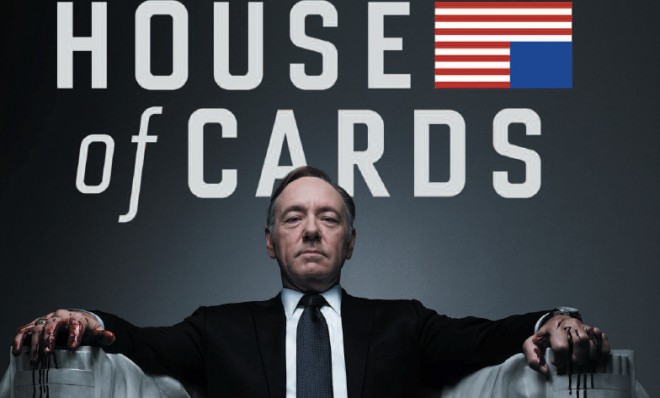How Netflix came back from the dead and beat HBO
In 2011, Netflix was a punch line. In 2013, it's revolutionizing an industry

A free daily email with the biggest news stories of the day – and the best features from TheWeek.com
You are now subscribed
Your newsletter sign-up was successful
Netflix is having a week to remember: After releasing a healthy first-quarter earnings report Monday, which highlighted 2 million new subscribers, shares shot up 26 percent, to $217. That's an 88 percent increase since Jan. 1.
On top of winning back Wall Street's heart (no easy task!), Netflix has also hit a hugely important and symbolic milestone in the race for users: Netflix now has more subscribers than HBO. According to the research company SNL Kagan, Netflix ended the quarter with 29.2 million U.S. subscribers to its video streaming service, versus the 28.7 million HBO had at the end of last year.
Perhaps the most remarkable part of Netflix's recent success is that less than two years ago, the company was a punch line. After Netflix announced a 60 percent price hike in 2011, 805,000 subscribers jumped ship in a single quarter. And remember the virulently hated plan to spin off the DVD-by-mail service into a separate business called Qwikster? Shares plunged from almost $300 to as low as $53.80 last September. Netflix's decisions were so disastrous that they literally became a case study at Harvard Business School.
The Week
Escape your echo chamber. Get the facts behind the news, plus analysis from multiple perspectives.

Sign up for The Week's Free Newsletters
From our morning news briefing to a weekly Good News Newsletter, get the best of The Week delivered directly to your inbox.
From our morning news briefing to a weekly Good News Newsletter, get the best of The Week delivered directly to your inbox.
And yet, here we are: Netflix is once again riding high. How did that happen? Many attribute Netflix's ferocious turnaround to its foray into original programming, particularly the high-profile political drama House of Cards, which debuted in February to great reviews. More original shows have followed. Hemlock Grove, a horror show by Eli Roth, debuted last Friday, and a new season of the cultishly awaited comedy series Arrested Development will launch next month. Netflix suddenly has plenty of content that you simply cannot get without subscribing, and as they say, content is king.
What else did Netflix do right? The Street's Jim Cramer credits executives for their heartfelt apology after the 2011 screwups: "The mea culpa of management was dissed by Wall Street, but the customers loved it. The customers came right back. That wasn't in the playbook."
Similarly, Cramer argues, people were simply too quick to write off Netflix after the Qwikster debacle. "What people didn't understand, though, was that the web was adapting so fast to high-speed at the same time that the tablet had been born that Netflix was simply too cool a product not to have. And when you compared it to cable, it's a real bargain, especially because, other than sports, who the heck cares when you watch something."
Whatever the case, Netflix's original shows and renewed success are a game-changer for the industry. Rather than limiting itself to licensing and streaming, or devoting all its energy to original programming to compete with HBO and Showtime, Netflix is doing it all.
A free daily email with the biggest news stories of the day – and the best features from TheWeek.com
Of course, the game is hardly over, and Netflix hasn't won yet. Amazon, after all, is aggressively bidding for licensing rights for existing shows, driving prices up and forcing Netflix to become more selective about its own licensing choices. (Netflix is now discussing deals for targeting specific shows rather than bundles). And with Friday's release of Amazon Originals — which the company announced were the most-watched TV shows on Amazon last weekend — Jeff Bezos and Co. are keeping competition fierce on the programming side as well.
Still, Netflix is rolling. Three months ago, Netflix's chief content officer, Ted Sarandos, had this to say to GQ: "The goal is to become HBO faster than HBO can become us." It looks like they can check that one off their list.
Carmel Lobello is the business editor at TheWeek.com. Previously, she was an editor at DeathandTaxesMag.com.
-
 How the FCC’s ‘equal time’ rule works
How the FCC’s ‘equal time’ rule worksIn the Spotlight The law is at the heart of the Colbert-CBS conflict
-
 What is the endgame in the DHS shutdown?
What is the endgame in the DHS shutdown?Today’s Big Question Democrats want to rein in ICE’s immigration crackdown
-
 ‘Poor time management isn’t just an inconvenience’
‘Poor time management isn’t just an inconvenience’Instant Opinion Opinion, comment and editorials of the day